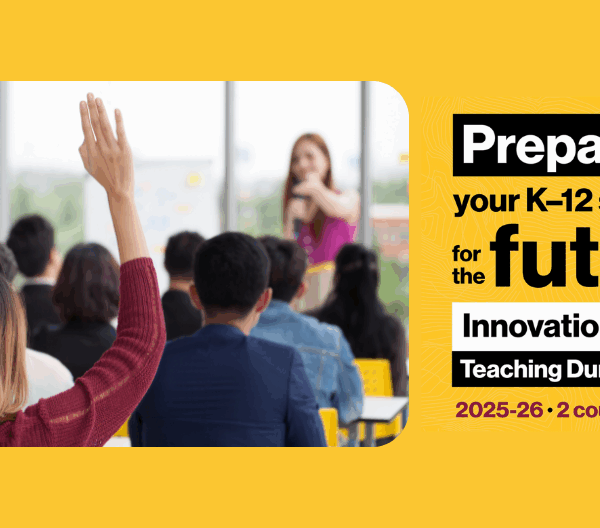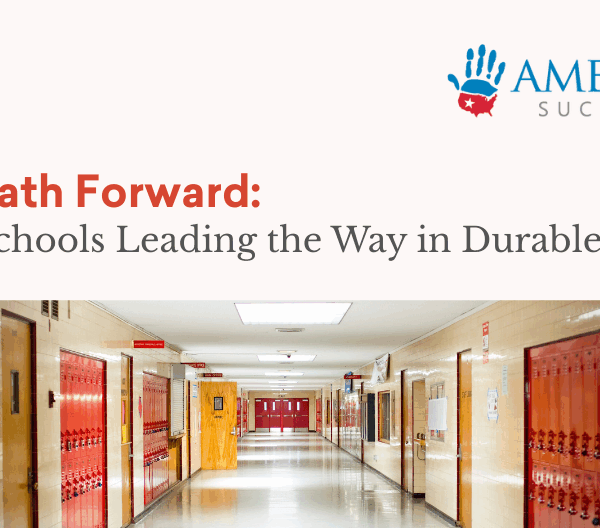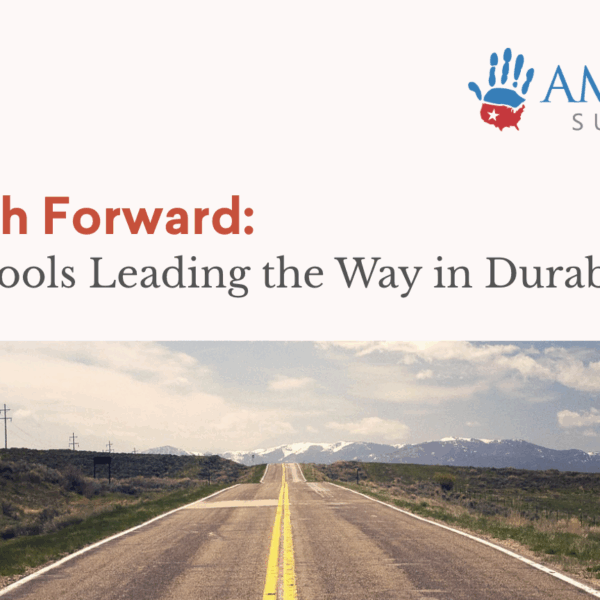The post-pandemic workforce landscape is undergoing significant changes. One of the biggest shifts? Employers are increasingly demanding Durable Skills, such as critical thinking, communication, and collaboration. In recognizing the role that Durable Skills play in unlocking economic mobility and lifelong success for learners, we created a Model Policy Framework for Advancing Durable Skills. The Framework stands as a unique resource aimed at using policy levers to create a more inclusive, innovative, and future-ready educational system. The policy initiatives, Agile High School Model, Durable Skills Education, and Career-Connected Learning, aim to transform educational structures, benefiting students and the workforce.
Let’s delve into why advancing this work is important:
Builds an adaptable education environment
The COVID-19 pandemic caused significant disruptions in our education systems, laying bare its vulnerabilities to internal and external forces. As explored in our Durable Skills webinar series, educational systems often struggle to swiftly adapt to the evolving needs of the workforce, resulting in obstacles to integrating Durable Skills into the classroom. This lack of agility has led to profound setbacks for both students and the economy, as students impacted by COVID-19 will likely experience a reduction in lifetime income.
The first initiative in our Framework, An Agile High School Model, introduces policies designed to foster a more adaptable secondary education environment. As highlighted in this policy area, implementing innovative learning models supports a secondary environment that can seamlessly adapt to changes. For example, personalized learning models grant educators flexibility to experiment with teaching methodologies tailored to an individual student’s needs. By shifting away from a one-size-fits-all approach, schools can cultivate an agile ecosystem that ensures students can consistently access vital development opportunities without foregoing the learning experiences necessary to graduate from high school.
Fosters resilient, future-ready individuals
As we enter an AI-driven era of work, the significance of Durable Skills development is becoming increasingly vital. With AI poised to potentially impact 300 million jobs, the landscape anticipates the creation of new jobs, shifts in current job roles, and changes in skill requirements. Therefore, educational institutions that emphasize the cultivation of Durable Skills like communication, problem-solving, and growth-mindset effectively equip students to navigate and excel in an ever-evolving workforce.
Within the second initiative in the Framework, A System Aligned with Durable Skills Education, the policies focus on reshaping curricula to prioritize skills that endure across industries and throughout careers. For example, improving accountability and transparency throughout all educational levels empowers learners to make informed decisions regarding their academic and career trajectories. Equipping students with an understanding of their proficiencies in crucial areas encourages them to leverage their strengths, embrace new challenges, and prepare for ongoing workforce evolution.
Creates pathways for students to land jobs
Today, 89% of employers face challenges in finding candidates with Durable Skills, highlighting a disparity between education and the workforce. This gap persists because of several factors, including a lack of industry experience, insufficient collaboration between educators and employment, and the education system failing to keep up with the changing needs of the workforce. Consequently, many graduates lack the skills employers look for, leading to higher rates of unemployment or underemployment.
In the third focus area of our Framework, Quality-Career Connected Learning Opportunities, our policies aim to create structured pathways that seamlessly connect students with skills development leading to career opportunities. As highlighted in the Framework, creating a comprehensive work-based learning framework bridges the gap between classroom education and real-world application. This initiative ensures that education isn’t confined to textbooks but extends into practical experiences. Activating these policy levers to offer students internships, mentorship opportunities, and hands-on projects, enabling them to gain insights and skills directly from industry professionals.
Fosters equity and opportunities
Advancing Durable Skills prioritizes preparing students for the workforce and aims to foster equity in education. Our Model Policy Framework acts as a guide to states in their efforts to transform school systems so that every learner can develop a solid foundation for future success. Through an adaptable high school system, students from diverse backgrounds can access tailored learning experiences that cater to their needs. By aligning education with the aevelopment of Durable Skills, K-12 learning will empower students to acquire enduring abilities essential to their personal and professional growth. Quality career-connected learning opportunities guarantee practical experience and exposure to various industries. Ultimately, the Model Policy Framework aims to foster a more inclusive educational environment, enabling learners to excel in an ever-changing world.
Join us in steering educational systems towards inclusivity, innovation, and future readiness. Together, let’s ensure that education becomes a catalyst for lifelong success and a brighter future for generations to come.




